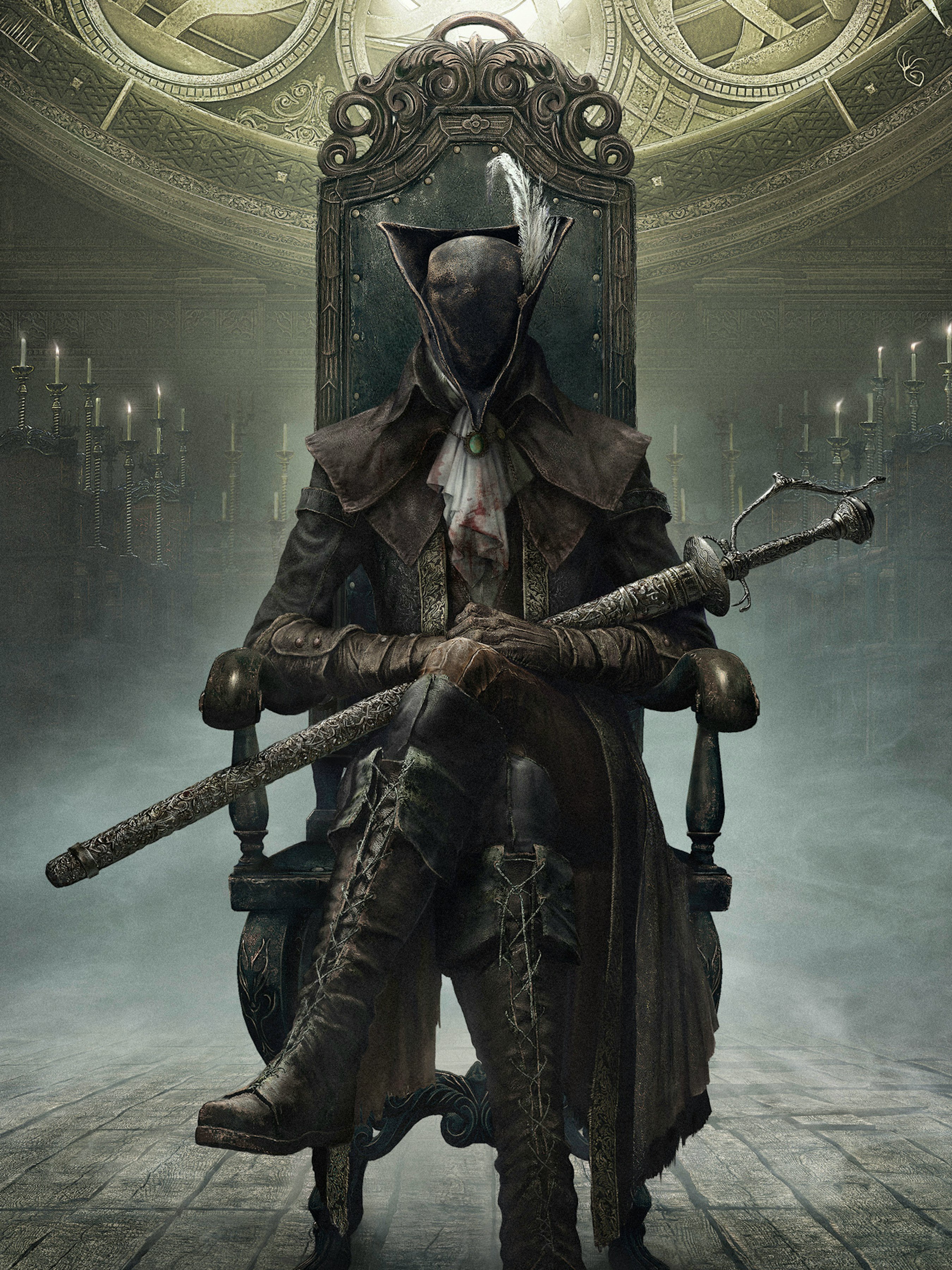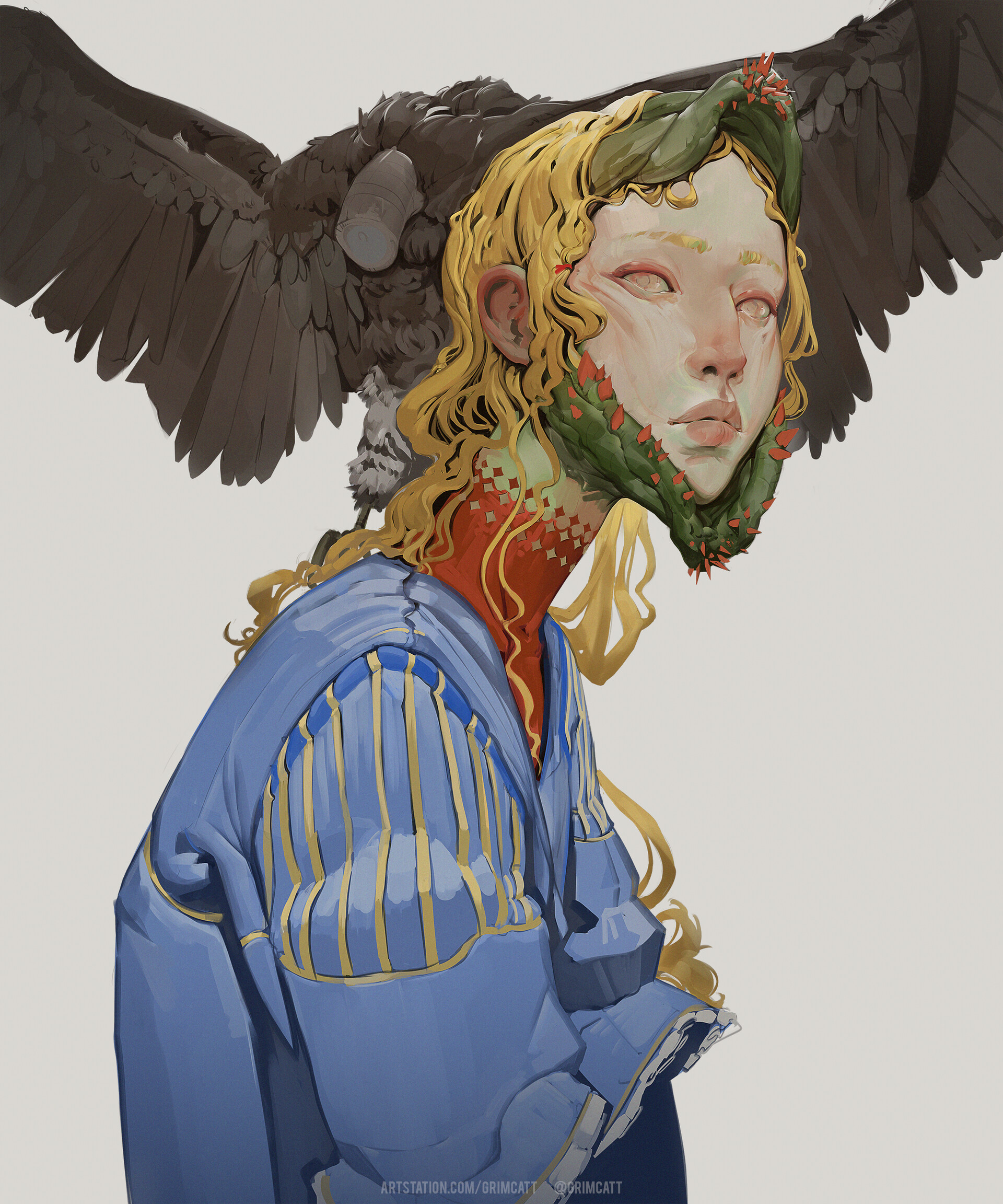 |
| The Workplace Recommends Dexterity Art from Bloodborne |
Per The Twelve Laws, Artisans never stop learning. Their education is perpetual, a machine that winds around itself, fueled by wind, wine, and blood. Graduates from the Artisinal Schools move on to join the ranks of coordinators and warmages in the military arm of The Republic or return to their hometowns to serve as courtiers. Occasionally, however, a student will show some prestigious bout for talent early on in their studies, and their name will be called separate from their classmates. Rarely does this occur in a single graduating class, but all who witness the sight of well-dressed inquisitors fear what is to come.
Lolea are executioners. Plucked most often from the classrooms of the Artisinal Schools, Lolea are curated by inquisitors and other Artisans (particularly professors) for inordinate talent, selecting those in the top percentile of their classmates. A Lolea's purpose is to serve both as warden and executioner, defending the school's interests and the well-being of its students. Their hand is expected when intruders breach the walls, or when a mage's rituals go awry, and violent acts must be performed. They are killers, calculating and ever-watchful, and these young artisans' training regimen ensures that. If the training lacks impact, trauma eventually achieves the same.
Not all Lolea are trained artisans, but all understand the danger of chaos left undivided. Numerous Lolea have been conscripted from the ranks of soldiers and guildsmen, seen by some of the former as a sign of honour and respect. Others are hired from less-pleasing backgrounds and then shipped off to the farthest corners of The Republic, serving as intermediaries. Occasionally a Lolea will retire from their services only to return to the job market touting their skills, a mage-slayer for hire. Demand is high among The Twin Provinces.
 |
| The Appearance Is Different But Ask An Artisan; The Vibe Is The Same Art by Saeed Farhangian |
The Lolea
Skill Proficiencies: Arcana, InsightTool Proficiencies: Any one set of Artisan's Tools
Equipment: A set of Artisan's Tools, a steel mirror, 10 feet of chain, a signet or badge of your corresponding patron, and a belt pouch containing 5 gp
----------
Optional Feat: Mage Slayer
Feature: Architect Slayer
You were brought upon the chambers of great constabularies and artisinal schools, serving as a last defence against the chaos. As someone who serves (or served) among the ranks of the Lolea, your title pulls immediate respect. Soldiers and academics will nod as you pass; your presence is welcome in positions headed by the military and anti-magical environments, and those in positions of power may grant you small benefits otherwise unfit for your station. Artisans will often spite you, and those who choose not to satisfy your ego will likely discredit you entirely.Call of Honor
The lifestyle of a Lolea begins with equal parts talent and image. No matter how qualified you may be, you cannot join the ranks of the mage slayers unless you are chosen to be one. When trying to figure out how your character's patronage came to be, consider the table below for ideas.
| d6 | Lore |
|---|---|
| 1 | I was assigned my position through hard work and rank-climbing. Those in my detachment chose me worthy. |
| 2 | I earned my role through nepotism: a bloodline of stalwart killers. |
| 3 | I was chosen by my artisinal school to ward against my classmates. |
| 4 | Inquisitors approached me sometime after graduation. In exchange for wealth and comfort, I must shadow other Artisans; my friends and my partners. |
| 5 | I earned this position by being unorthodox. My esoteric talents perpetrate my lifestyle, a trait others found compelling. |
| 6 | Another Lolea granted me his title as punishment for a deed I'd done. |
Being a Lolea is not an easy task, nor is it explained away as one. Many cope with their occupation by finding other vices to confide in, while others take pride in their work. Not all executioners work on behalf of the Artisinal Schools either: plenty of dedicated individuals (with or without the proper education) are willing to perform the same tasks for coin. Whatever your background, your duties remain the same, and those who genuinely believe in protecting the greater populace will surely be rewarded.
| d8 | Personality Trait |
|---|---|
| 1 | I am cold and unflinching. Violence is a necessity; death must be dealt. |
| 2 | I am empathetic toward those I supervise. |
| 3 | I hate working alone and, if possible, perform all of my tasks in pairs. |
| 4 | Hypervigilance has kept my partners and me alive. |
| 5 | There has never been a moment where I have doubted what I've done. |
| 6 | I am a strict loyalist to the laws of man. |
| 7 | I carry an odd glibness in my words, fragments from another time. |
| 8 | I perform any task to the highest bidder. |
| d6 | Ideal |
|---|---|
| 1 | Order. My actions are for the greater good, to protect the world from the whims of chaos. (Lawful) |
| 2 | Utilitarianism. The needs of the many outweigh the fears of the few. (Neutral) |
| 3 | Pride. The occult disgusts and terrifies me, so I must stand in their way for posterity's sake. (Evil) |
| 4 | Pleasure. The acts I perform grant me untold satisfaction. I will do it again and again until the earth is dry. (Chaotic) |
| 5 | Service. I will perform my duties with the utmost respect. There will be no victims while I serve. (Good) |
| 6 | Avarice. No man has ever word a job for free, not of their own accord. (Neutral) |
| d6 | Bond |
|---|---|
| 1 | This is the blade of the colossus, which strikes down the architect and all its crafts. |
| 2 | My sigils are in the eyes of a thousand dead men. My armour is the vessel for a messenger of death. |
| 3 | Those who share my craft are more than siblings; they are the roots which hold me taut. |
| 4 | I am a soldier first and a Lolea second. My allegiances are to The Republic and its many suzerains. |
| 5 | Magic is a gateway to things beyond the veil of understanding. By perfecting it, I become truly superior to those I supervise. |
| 6 | The Artisans think themselves slick, devoid of imperfection or rot. I am living proof of their foretold annihilation. |
| d6 | Flaw |
|---|---|
| 1 | The last time I faltered, people died. Never again. |
| 2 | Artisans are simply frogs who have yet to realize they are in the pot. |
| 3 | This job is a chore; these tasks are a farce. I wish I was at home in my underwear. |
| 4 | I am sensitive to the sight and smell of blood. |
| 5 | Work has desensitized me to social situations. I find it difficult to converse about things besides my occupation. |
| 6 | I am suspicious of everyone and everything related to the supernatural, even my closest friends. |






